Central To The Film Is A Reclamation Of The Orpheus Myth, A Version Of Which The Three Young Women Read


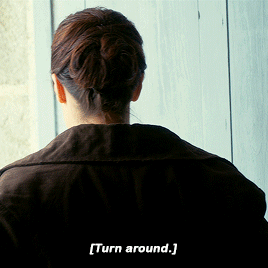
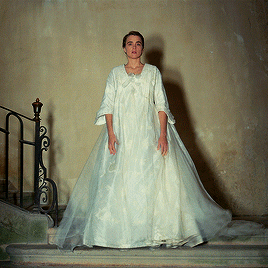
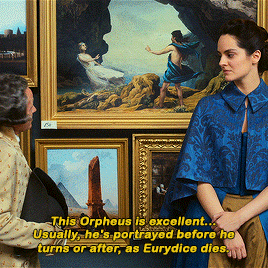
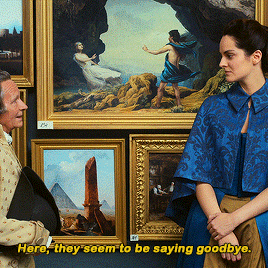
Central to the film is a reclamation of the Orpheus myth, a version of which the three young women read aloud together one night. Sophie registers distress at Orpheus’s fatal, selfish incompetence in looking back at Eurydice when he was told not to, and Marianne suggests he may have done it on purpose, preferring to lose the woman and savor, instead, the romance of his grief, making not “the lover’s choice, but the poet’s.” But it’s Héloïse who removes, for once, the fixation on Orpheus, his failings, and his loss. What if, she says to Marianne with an edge of defiance, it was Eurydice herself who chose art over staying together, who rather than leave the underworld with Orpheus, stopped and called out “Turn around,” preferring to remain down there and be preserved in poetry. A kind of freedom and a kind of permanence, rather than, as eighteenth-century marriage looks to be, an unwilling exchange of one for the other. — In Portrait of a Lady on Fire, Love is a Work of Art
More Posts from Chrys-red and Others

don't leave me!

poster for "le frisson des vampires", 1971
some of you need to make your bed and have a shower with a soap that smells nice, and then sit in a chair near the window and have tea with milk and read a hardcover book and see how your creative block is after that tbh.









sky high but it’s about being gay
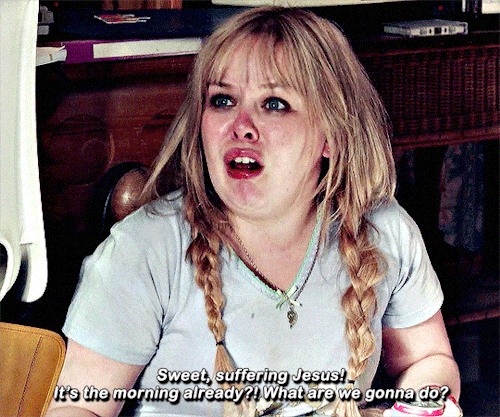
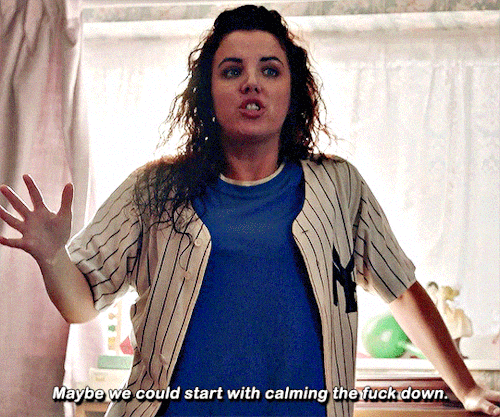
#me and my anxiety at the start of a brand new day
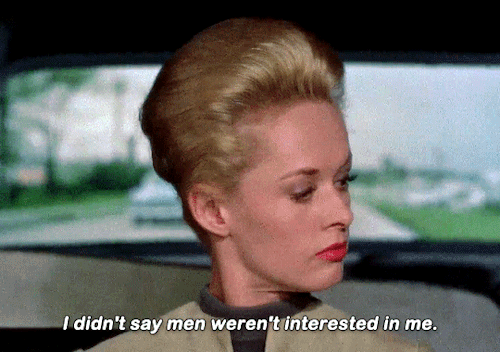
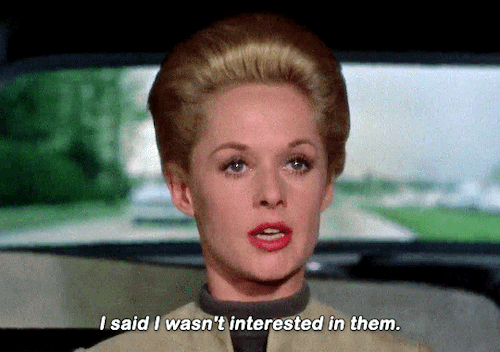
“Never?” “No.”
Marnie (1964) dir. Alfred Hitchcock




you can do it







20 Years of Freaky Friday (August 6th, 2003)






top 10 runaways dynamics as voted on by my followers
1.) karolina dean & nico minoru
“you should have run. some of us wanted to. but not you?”














Ferrera said it felt like she filmed 500 takes of the speech over the two days of filming, adding, “It was probably 30 to 50 full runs of it, top to bottom. By the end, [co-star Ariana Greenblatt] recited the monologue to me because she had memorized it because that’s how many times I had said it.”
Barbie (2023) dir. Greta Gerwig
-
 mourningtide liked this · 2 weeks ago
mourningtide liked this · 2 weeks ago -
 saintofmediocrity reblogged this · 2 weeks ago
saintofmediocrity reblogged this · 2 weeks ago -
 blooddrunkbitch liked this · 3 weeks ago
blooddrunkbitch liked this · 3 weeks ago -
 missmakomori liked this · 3 weeks ago
missmakomori liked this · 3 weeks ago -
 veronicamarss reblogged this · 1 month ago
veronicamarss reblogged this · 1 month ago -
 laconic-draconic reblogged this · 1 month ago
laconic-draconic reblogged this · 1 month ago -
 laconic-draconic liked this · 1 month ago
laconic-draconic liked this · 1 month ago -
 coconutrosy reblogged this · 1 month ago
coconutrosy reblogged this · 1 month ago -
 cursedrosaries liked this · 1 month ago
cursedrosaries liked this · 1 month ago -
 movieemary liked this · 1 month ago
movieemary liked this · 1 month ago -
 babyboylou reblogged this · 1 month ago
babyboylou reblogged this · 1 month ago -
 peachesfuzzzz reblogged this · 1 month ago
peachesfuzzzz reblogged this · 1 month ago -
 thegunslingerletmedrop liked this · 1 month ago
thegunslingerletmedrop liked this · 1 month ago -
 trans-riot reblogged this · 1 month ago
trans-riot reblogged this · 1 month ago -
 prettymesslu reblogged this · 1 month ago
prettymesslu reblogged this · 1 month ago -
 prettymesslu liked this · 1 month ago
prettymesslu liked this · 1 month ago -
 riosnecktattoo reblogged this · 1 month ago
riosnecktattoo reblogged this · 1 month ago -
 rosewaterknives reblogged this · 1 month ago
rosewaterknives reblogged this · 1 month ago -
 galatheos liked this · 1 month ago
galatheos liked this · 1 month ago -
 catlizard liked this · 1 month ago
catlizard liked this · 1 month ago -
 history-is-amazing liked this · 1 month ago
history-is-amazing liked this · 1 month ago -
 marenyearlyyy reblogged this · 1 month ago
marenyearlyyy reblogged this · 1 month ago -
 daefni liked this · 1 month ago
daefni liked this · 1 month ago -
 sourlike reblogged this · 1 month ago
sourlike reblogged this · 1 month ago -
 raisindeatre liked this · 1 month ago
raisindeatre liked this · 1 month ago -
 svantetic reblogged this · 1 month ago
svantetic reblogged this · 1 month ago -
 hellogreyeyedathena reblogged this · 1 month ago
hellogreyeyedathena reblogged this · 1 month ago -
 hellogreyeyedathena liked this · 1 month ago
hellogreyeyedathena liked this · 1 month ago -
 spiderbacks liked this · 1 month ago
spiderbacks liked this · 1 month ago -
 itneedsglitter reblogged this · 1 month ago
itneedsglitter reblogged this · 1 month ago -
 bvbshoe liked this · 1 month ago
bvbshoe liked this · 1 month ago -
 venusylph reblogged this · 1 month ago
venusylph reblogged this · 1 month ago -
 venusylph liked this · 1 month ago
venusylph liked this · 1 month ago -
 shadowmap reblogged this · 1 month ago
shadowmap reblogged this · 1 month ago -
 invisible-flying-lions liked this · 1 month ago
invisible-flying-lions liked this · 1 month ago -
 eqqautor liked this · 1 month ago
eqqautor liked this · 1 month ago -
 deviljho liked this · 1 month ago
deviljho liked this · 1 month ago -
 warged liked this · 1 month ago
warged liked this · 1 month ago -
 althaeaofficinalis liked this · 1 month ago
althaeaofficinalis liked this · 1 month ago -
 starrynightsforever liked this · 1 month ago
starrynightsforever liked this · 1 month ago -
 voluptuarian liked this · 1 month ago
voluptuarian liked this · 1 month ago -
 flora-is-just-here-ig liked this · 1 month ago
flora-is-just-here-ig liked this · 1 month ago -
 flawlesstew liked this · 1 month ago
flawlesstew liked this · 1 month ago -
 ram-bling-man liked this · 1 month ago
ram-bling-man liked this · 1 month ago -
 blxckwidow reblogged this · 1 month ago
blxckwidow reblogged this · 1 month ago -
 solarflicker liked this · 1 month ago
solarflicker liked this · 1 month ago -
 splendidduchess reblogged this · 1 month ago
splendidduchess reblogged this · 1 month ago -
 ghostbird-7 liked this · 1 month ago
ghostbird-7 liked this · 1 month ago
